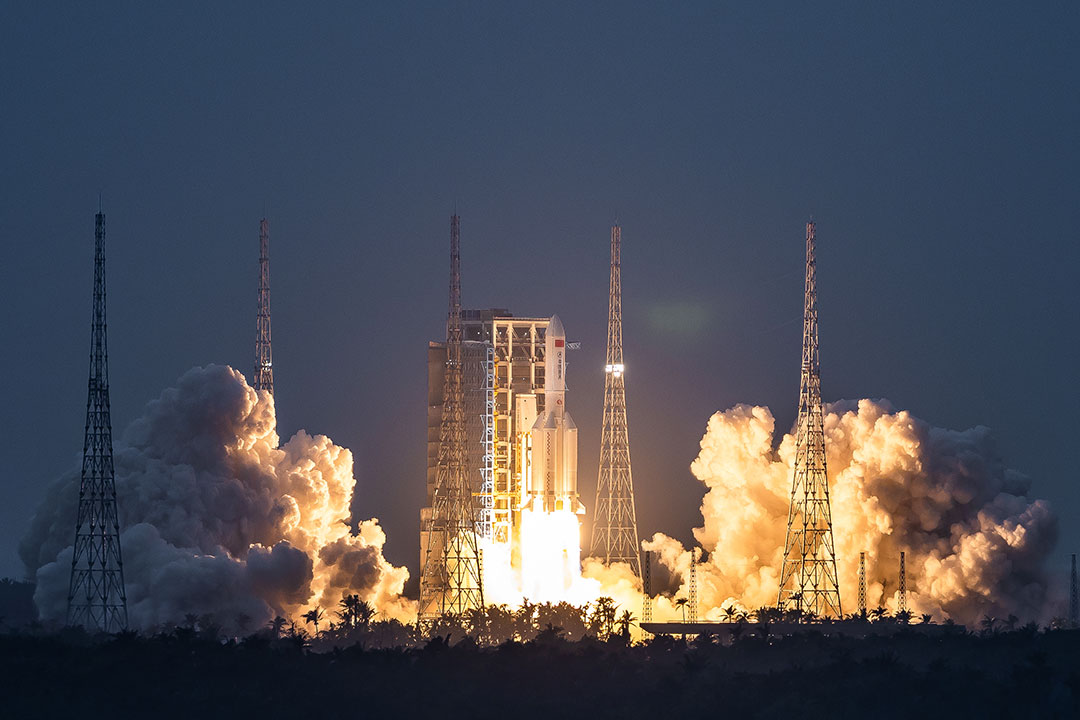PHL military launches air and sea search for Chinese rocket debris near Palawan province

THE Armed Forces of the Philippines (AFP) has deployed air and naval units to search for suspected rocket debris from a recent Chinese space launch that may have fallen into Philippine waters near Palawan, a military official said on Wednesday.
The search and retrieval operations began on Tuesday in the Sulu Sea, between Puerto Princesa City and Tubbataha Reefs Natural Park, according to Colonel Nep V. Padua, chief of the AFP Western Command’s public information office.
“Yesterday, the Western Command, through its subordinate Air Force and Navy components, deployed [assets] to search in the vicinity of the Sulu Sea, between the east coast of mainland Palawan and Tubbataha Reefs,” he told reporters via teleconference.
He said the Philippine Air Force dispatched two aircraft and a helicopter, while the Philippine Navy sent a ship to help find and recover the debris. As of Wednesday, no fragments had been found.
The military would continue operations until the debris is located or the search is assessed to be no longer feasible, Mr. Padua said.
The suspected debris is believed to have come from a Long March 12 rocket launched by China earlier this week to deliver internet satellites into low Earth orbit.
The rocket’s two-stage system is powered by six liquid oxygen-kerosene engines and can carry up to 12,000 kilograms of payload, according to a report by Reuters.
The Philippine Space Agency said the rocket flew over Palawan, with debris expected to fall about 21 nautical miles (39 kilometers) from Puerto Princesa and 18 nautical miles from Tubbataha Reefs, a United Nations Educational, Scientific and Cultural Organization (UNESCO) World Heritage Site.
The Philippines has formally protested, Palace Press Officer Clarissa A. Castro told a news briefing in Nel Delhi, where President Ferdinand R. Marcos, Jr. is on a state visit.
She conveyed the government’s concern, quoting a statement by Foreign Affairs Secretary Ma. Theresa P. Lazaro.
“The Philippines notes with concern China’s launch of its Long March 12 space launch vehicle on Aug. 4, which resulted in debris falling into Philippine waters,” Ms. Castro said, based on a livestreamed video by state media.
The two countries remain locked in a geopolitical dispute over claims in the South China Sea, where about $3.36 trillion worth of global trade passes through yearly.
“The Philippines takes this opportunity to urge all spacefaring states to conduct their space activities in a manner consistent with norms of responsible behavior, and with due regard to the rights of interests of other states,” according to Ms. Lazaro’s statement.
The palace deferred comments on technical and safety matters to the Philippine Space Agency (PhilSA) and other concerned agencies.
Ms. Castro said PhilSA Deputy Director General Gay Jane P. Perez assessed the incident and confirmed that the debris drop zone was somewhat close to Philippine territory.
The National Security Council (NSC) on Tuesday criticized China’s space launch as “irresponsible,” citing the proximity of the debris drop zone to populated and environmentally sensitive areas.
“While no immediate damage or injury has been reported so far, falling debris from the launch poses a clear danger and risk to land areas and to ships, aircraft, fishing boats and other vessels that will pass through the drop zone,” National Security Adviser Eduardo M. Año said in a statement. — Kenneth Christiane L. Basilio and Chloe Mari A. Hufana



